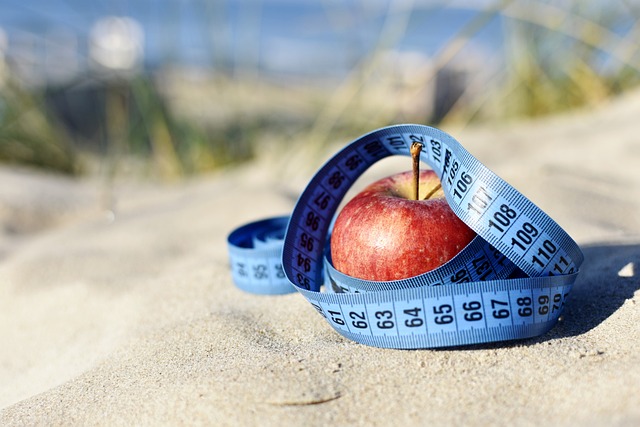So you’ve made the decision to start your weight loss journey and you’re wondering where to begin? Well, you’ve come to the right place! Starting a weight loss journey can be both exciting and overwhelming, but fear not – I’ve got some tips to get you started on the right track. In this article, we’ll dive into some key steps you can take to kickstart your weight loss journey and set yourself up for long-term success. Whether you’re looking to shed a few pounds or make a significant lifestyle change, you’ll find valuable information and strategies here to help you along the way. So, let’s get started!
First and foremost, it’s important to establish clear and realistic goals for yourself. This means taking the time to reflect on what you hope to achieve through your weight loss journey and setting specific objectives. Maybe you want to fit into those jeans you’ve been eyeing for months, or perhaps you’re aiming for overall improved health and well-being. Whatever your goals may be, remember to keep them attainable and measurable. Setting unrealistic expectations can lead to frustration and a potential loss of motivation.
Once you’ve set your goals, it’s time to incorporate healthy eating habits into your lifestyle. This doesn’t mean you have to go on a restrictive diet or completely eliminate your favorite foods. Instead, focus on making healthier choices and maintaining a balanced diet. Fill your plate with nutritious foods such as fruits, vegetables, lean proteins, and whole grains. And don’t forget to stay hydrated! Drinking enough water can aid in digestion, boost metabolism, and keep you feeling full.
In addition to healthy eating, regular exercise is key to weight loss. Find activities that you enjoy and can stick to in the long run. Whether it’s cycling, swimming, dancing, or simply going for a brisk walk, moving your body helps burn calories, build muscle, and improve your overall fitness level. Start by incorporating at least 30 minutes of moderate-intensity exercise into your daily routine and gradually increase the duration and intensity as you progress. Remember, the key is consistency. So, lace up those sneakers and get moving!

Setting Goals and Motivation
Evaluating your current situation
Before embarking on your weight loss journey, it’s essential to evaluate your current situation. Take a moment to assess your overall health and well-being. Are there any underlying health conditions or medications that may affect your weight loss progress? Understanding your starting point will help you set realistic goals and make necessary adjustments along the way.
Defining your weight loss goal
Once you’ve evaluated your current situation, it’s time to define your weight loss goal. What is your ideal weight or target body fat percentage? Keep in mind that weight loss should be a gradual process, and it’s important to set achievable goals. It’s recommended to aim for a weight loss of 1-2 pounds per week, which is considered a healthy and sustainable rate.
Creating a realistic timeline
Now that you have a clear weight loss goal, it’s crucial to create a realistic timeline. Losing weight too quickly can be detrimental to your health and often leads to weight regain. Instead, focus on making long-term lifestyle changes that promote sustainable weight loss. Remember, it’s not about a quick fix; it’s about making permanent changes for a healthier you.
Finding your motivation
Motivation plays a vital role in any weight loss journey. Find your personal motivation by reflecting on why you want to lose weight. Is it to improve your overall health, boost your confidence, or have more energy? Whatever your motivation may be, remind yourself of it regularly. It can be helpful to create a vision board or write down your goals as a constant reminder of why you started your weight loss journey.
Making Dietary Changes
Understanding calorie intake
When it comes to weight loss, understanding calorie intake is crucial. In simple terms, weight loss occurs when you consume fewer calories than you burn. Calculate your daily caloric needs and create a calorie deficit by consuming fewer calories. However, it’s important to note that you should never restrict your calorie intake too drastically, as this can be harmful to your health. Aim for a balanced approach that provides you with essential nutrients while promoting weight loss.
Choosing a suitable diet plan
With so many diet plans available, it can be overwhelming to choose the right one. Remember that different approaches work for different people, so it’s essential to find a plan that suits your lifestyle and dietary preferences. Some popular diet plans include the Mediterranean diet, the ketogenic diet, and the DASH diet. Research each plan and consult with a healthcare professional to determine which one is best for you.
Incorporating more fruits and vegetables
One of the easiest and healthiest dietary changes you can make is to incorporate more fruits and vegetables into your meals. Fruits and vegetables are low in calories and high in essential vitamins, minerals, and fiber. They help you feel fuller for longer, reducing the chances of overeating. Aim to fill half of your plate with colorful fruits and vegetables at each meal.
Reducing sugar and processed food consumption
Sugar and processed foods are major contributors to weight gain and various health issues. Make an effort to reduce your consumption of added sugars, sugary beverages, and highly processed foods. Opt for whole, unprocessed foods whenever possible and choose natural sweeteners like honey or maple syrup instead of refined sugar.
Practicing portion control
Portion control plays a significant role in weight loss. It’s important to be mindful of your portion sizes, as even healthy foods can contribute to weight gain if consumed excessively. Consider using smaller plates and bowls to help visualize appropriate portion sizes. Additionally, listen to your body’s hunger and fullness cues to avoid overeating.
Developing an Exercise Routine
Consulting with a healthcare professional
Before starting any exercise routine, it’s essential to consult with a healthcare professional, especially if you have any underlying health conditions or injuries. They can provide guidance on suitable exercises and ensure your safety during workouts.
Choosing activities you enjoy
Exercise doesn’t have to be a chore. Choose activities that you enjoy to make your workouts more enjoyable and sustainable. Whether it’s walking, cycling, dancing, or swimming, find activities that make you excited to move your body. Remember, consistency is key, so choose activities that you can incorporate into your daily routine.
Setting a regular workout schedule
To make exercise a habit, it’s crucial to set a regular workout schedule. Consistency is key when trying to achieve weight loss goals. Determine the best time of day for you to exercise and block off that time in your schedule. Treat it as a non-negotiable appointment with yourself and make it a priority.
Starting with low-impact exercises and gradually increasing intensity
If you’re new to exercise or haven’t been active for a while, it’s important to start with low-impact exercises and gradually increase the intensity. This approach allows your body to adapt to the demands of exercise and reduces the risk of injury. Consider activities such as walking, yoga, or swimming to begin with, and gradually incorporate more challenging workouts as you become fitter and stronger.

Tracking Progress
Monitoring weight and measurements
Monitoring your weight and measurements can be a helpful way to track your progress. However, it’s important to remember that the number on the scale isn’t the only indicator of success. Take measurements of your waist, hips, and other areas of interest to get a comprehensive view of your progress.
Keeping a food and exercise journal
Keeping a food and exercise journal can be a powerful tool for weight loss. Write down everything you eat and drink, as well as your exercise activities and duration. This helps you become more aware of your eating habits and allows you to identify any patterns or problem areas. It can also serve as a source of motivation and accountability.
Using smartphone apps or fitness trackers
Technology can be a valuable asset in your weight loss journey. There are numerous smartphone apps and fitness trackers available that can help you track your food intake, exercise, and monitor your progress. Find an app or tracker that aligns with your goals and preferences and use it as a tool to stay on track.
Managing Stress and Emotions
Identifying stress triggers
Stress and emotions can often lead to emotional eating or unhealthy coping mechanisms. Take the time to identify your stress triggers and find healthier ways to manage them. Whether it’s through meditation, deep breathing exercises, or engaging in hobbies you enjoy, finding healthy outlets for stress can prevent emotional eating and help you stay on track with your weight loss goals.
Practicing stress-reducing techniques
In addition to identifying stress triggers, it’s important to practice stress-reducing techniques regularly. This can include activities such as yoga, meditation, mindfulness, or even simply taking a walk in nature. Find what works best for you and make it a priority to incorporate these techniques into your daily routine.
Seeking support from friends, family, or a therapist
Having a support system in place can significantly impact your weight loss journey. Seek support from friends, family, or even a therapist if needed. Sharing your goals and struggles with others not only provides accountability but also offers emotional support during challenging times.
Seeking Professional Guidance
Consulting with a registered dietitian
If you feel overwhelmed or unsure about the nutritional aspect of your weight loss journey, consider consulting with a registered dietitian. They can provide personalized advice tailored to your specific needs and help you develop a sustainable and nutritious eating plan.
Getting a fitness assessment from a personal trainer
If you’re unsure of where to start with your exercise routine or want to make sure you’re doing exercises correctly and safely, consider getting a fitness assessment from a personal trainer. They can assess your current fitness level and help you develop an exercise program that suits your goals and abilities.
Considering weight loss medications or surgery
In some cases, weight loss medications or surgery may be necessary to achieve your weight loss goals, especially if you have significant health concerns related to your weight. Consult with a healthcare professional to discuss the potential risks and benefits of these options.
Overcoming Plateaus
Reevaluating your diet and exercise routine
Plateaus are common during a weight loss journey. If you find that you’ve hit a weight loss plateau, it’s important to reevaluate your diet and exercise routine. Look for areas where you can make adjustments, whether it’s tweaking your calorie intake, diversifying your workouts, or changing up your meal plan. Small modifications can help kickstart your progress again.
Introducing new activities or changing exercise intensity
To overcome plateaus, consider introducing new activities or changing the intensity of your workouts. Your body adapts to the exercises you regularly engage in, so incorporating variety can challenge different muscle groups and prevent plateauing. Try different workout classes, explore outdoor activities, or increase the intensity of your workouts by adding weights or intervals.
Finding strategies to stay motivated
Staying motivated is crucial for long-term weight loss success. Find strategies that work for you to stay motivated, whether it’s setting small, achievable goals, rewarding yourself for milestones, or finding a workout buddy to keep you accountable. Remember that motivation fluctuates, and it’s normal to have ups and downs. Find what motivates you and use that as fuel to keep going.
Building a Support System
Sharing your goals with friends and family
Share your weight loss goals with friends and family. Not only does this provide accountability, but it also allows your loved ones to support and encourage you throughout your journey. They can offer words of encouragement, celebrate your successes, and provide the necessary support when you face challenges.
Finding a weight-loss buddy or joining a support group
If you prefer additional support, consider finding a weight-loss buddy or joining a support group. Having someone who understands the challenges and triumphs of the weight loss journey can make a significant difference. Share your experiences, seek advice, and offer support to others in the group. Together, you can celebrate victories and overcome obstacles.
Maintaining Weight Loss
Continuing healthy eating habits
Once you’ve achieved your weight loss goal, it’s important to continue practicing healthy eating habits. Focus on nourishing your body with whole, nutrient-dense foods and maintaining a balanced diet. Avoid slipping back into old habits and be mindful of portion sizes.
Staying active and incorporating exercise into daily routine
Maintaining weight loss involves staying active and incorporating exercise into your daily routine. Aim for at least 150 minutes of moderate-intensity aerobic activity or 75 minutes of vigorous-intensity aerobic activity each week. Find activities you enjoy and make exercise a regular part of your lifestyle.
Avoiding yo-yo dieting
Yo-yo dieting, also known as weight cycling, refers to the repeated loss and regain of weight. It can be harmful to both your physical and mental health. Instead, focus on creating a sustainable lifestyle change that promotes long-term weight maintenance. Remember, slow and steady wins the race.
Celebrating milestones and rewarding yourself
Throughout your weight loss journey, celebrate milestones and reward yourself for your hard work and progress. Set small goals along the way and treat yourself with non-food rewards when you achieve them. This helps reinforce positive behaviors and keeps you motivated on your journey.
Conclusion
Reflect on your progress and how far you’ve come on your weight loss journey. Celebrate the changes you’ve made and the improved health and well-being you’ve achieved. Embrace the sustainable lifestyle changes you’ve incorporated, and remember that this isn’t just a temporary fix, but a lifelong commitment to your health. By starting your weight loss journey and embracing healthy habits, you are taking a crucial step towards a happier and healthier you. Enjoy the process, and remember that you’re worth every effort you put into your own well-being.



